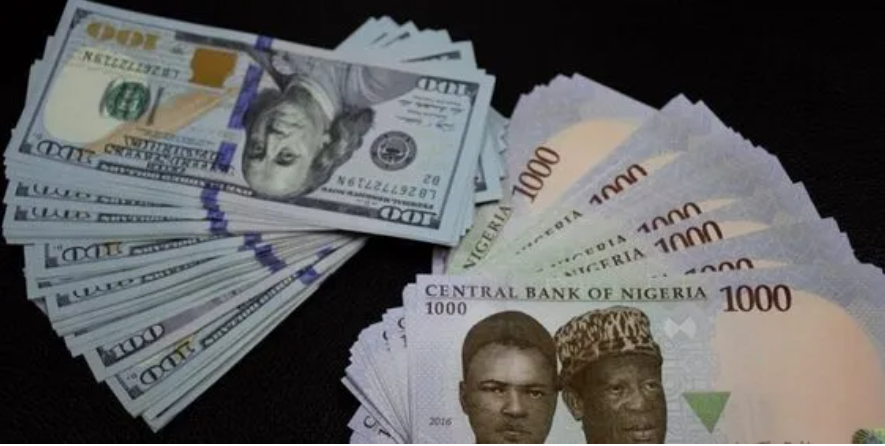By Jemimah Wellington, JKNewsMedia Reporter
THE EXCHANGE rate between the naira and the US dollar appeared steady mid-week, with the local currency trading at N1,605/$1 in the parallel market on February 5, 2025.
Reports note that this followed a brief period of fluctuation earlier in the week, offering a glimpse of relative stability in the forex market.
On Monday, February 3, the naira traded at N1,605/$1 (selling) and N1,602/$1 (buying).
However, the currency weakened slightly on Tuesday, falling to N1,610/$1 before regaining strength on Wednesday, trading at N1,605/$1 again.
This mid-week performance marks an improvement from the previous week when the naira struggled at weaker levels.
During the same period last week, the parallel market exchange rates were N1,660/$1 on Monday, N1,650/$1 on Tuesday, and N1,635/$1 on Wednesday.
In contrast, the official market saw steady performance. The naira closed at N1,499/$1 on both Monday and Tuesday, remaining unchanged, reflecting stability in the regulated market.
Last week, it traded at slightly weaker levels: N1,533.50/$1 on Monday, N1,520/$1 on Tuesday, and N1,506/$1 on Wednesday.
The naira’s performance was also observed against other major currencies such as the British pound (GBP) and the euro (EUR), with fluctuations noted across the same days.
Market analysts attribute the recent stability to several factors, including an increase in dollar supply, the Central Bank of Nigeria’s (CBN) intervention strategies, and a reduction in speculative activities in the parallel market.
Further stability may be linked to the CBN’s recent extension of the deadline for Bureau de Change (BDC) operators to access the Nigerian Foreign Exchange Market (NFEM) for weekly purchases.
Originally set to expire on January 31, 2025, the new deadline has been moved to May 30, 2025.
The CBN’s decision aims to stabilise the forex market, according to the Association of Bureau de Change Operators of Nigeria (ABCON).
Its president, Dr Aminu Gwadabe, welcomed the extension, highlighting that it promotes inclusivity through the Electronic Foreign Exchange Matching System (EFEMS).
He added that despite this, experts continue to monitor external factors like oil prices, Nigeria’s foreign reserves, and any policy shifts from the CBN, all of which could influence the naira’s future performance in the forex market.
Gwadabe said that as the week progresses, both businesses and individuals involved in forex transactions will be observing whether the naira can maintain its current stability or face further fluctuations in the coming days.





